FASHION ARTISANRY
Designer Lukhanyo Mdingi weaves the spirit of ubuntu in his collaboration with the mothers of Philani
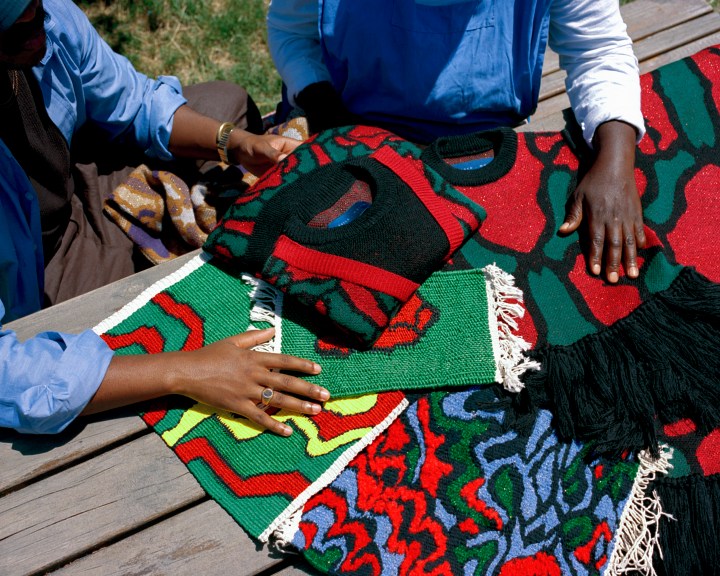
‘Sometimes I feel like a broken record when I speak about the collective but that is the essence of who we are. I believe in human beings. I believe in design and I believe that you need a community of people to reach your fullest potential,’ says Lukhanyo Mdingi, the young designer behind the eponymous brand.
In the African philosophy of ubuntu, there’s an age-old isiZulu saying, “Umuntu ngumuntu abantu”, (“a person is a person through other people”). What it essentially means is that I am only me and you are only you because of who we are together. Without a community, without a collective, who we are, what we are and the things that we create are meaningless.
Like any versatile designer’s work should, Lukhanyo Mdingi’s final collections vary in their visual semblance. Still, all of his creations are bound together by a common thread of meaning which fosters a narrative consistency in the underlying virtues of the LM label: the spirit of ubuntu. If skilled artisanry and sublime aesthetics are the buttresses of the Mdingi brand, collaboration and community are the foundations.
The extent to which the concept of the collective is embedded in the label’s ethos is perhaps made most palpable through the 30-year-old creative’s unfolding collaboration with Philani, a Cape Town-based NGO dedicated to improving child nutrition and empowering women from marginalised communities.
The seeds of Mdingi’s budding relationship with Philani were first sown in 2020 when he approached the organisation to discuss the prospect of partnering with them to create a series of woven garments and tapestries for his Coutts Collection. The Coutts Collection pays homage to Mdingi’s late best friend and fellow fashion designer Nicholas Coutts who, prior to his death, had worked with the organisation to create pieces for a number of his own collections.
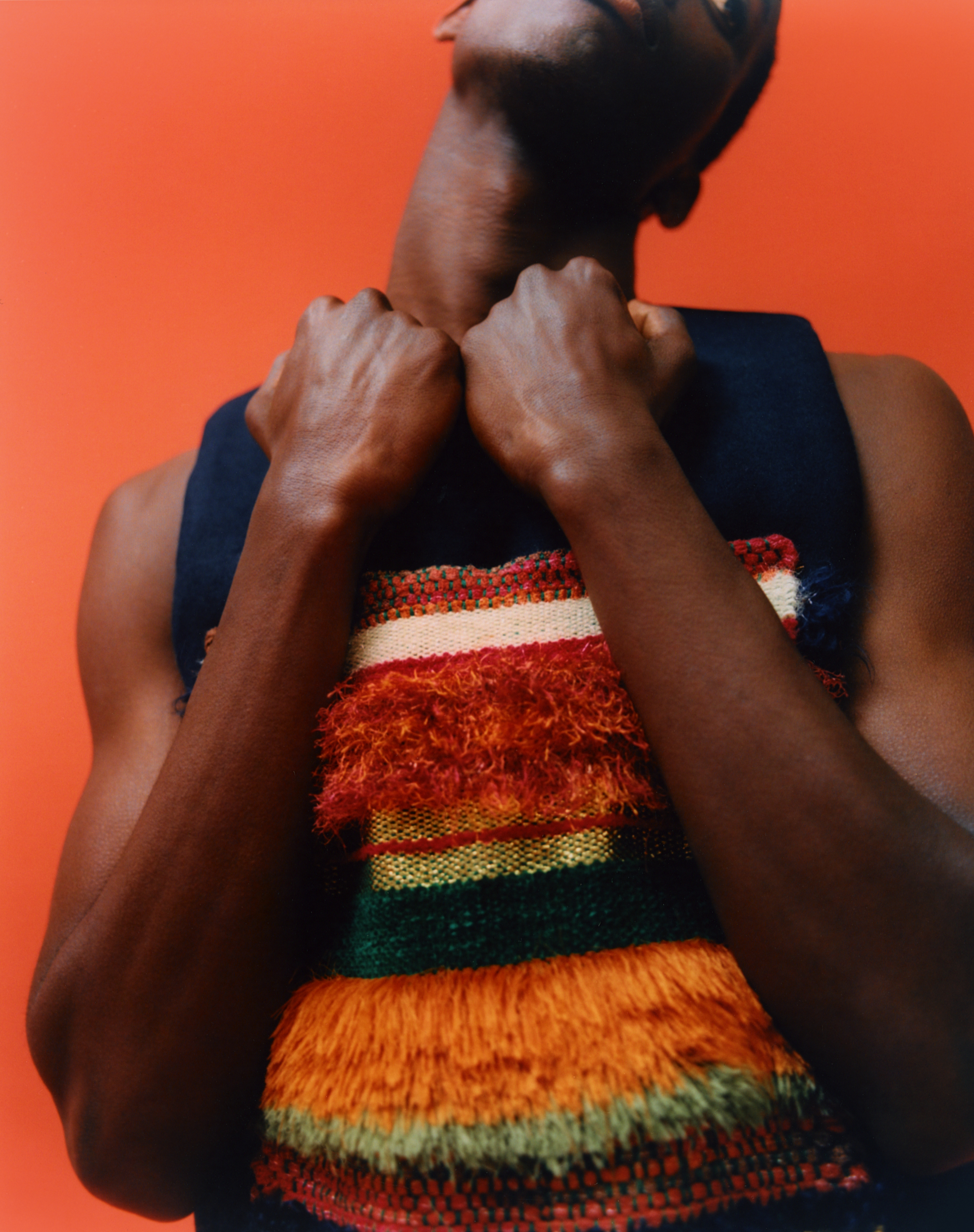
The Coutts collection by Lukhanyi Mdingi. Image: Jesse Navarre Vos
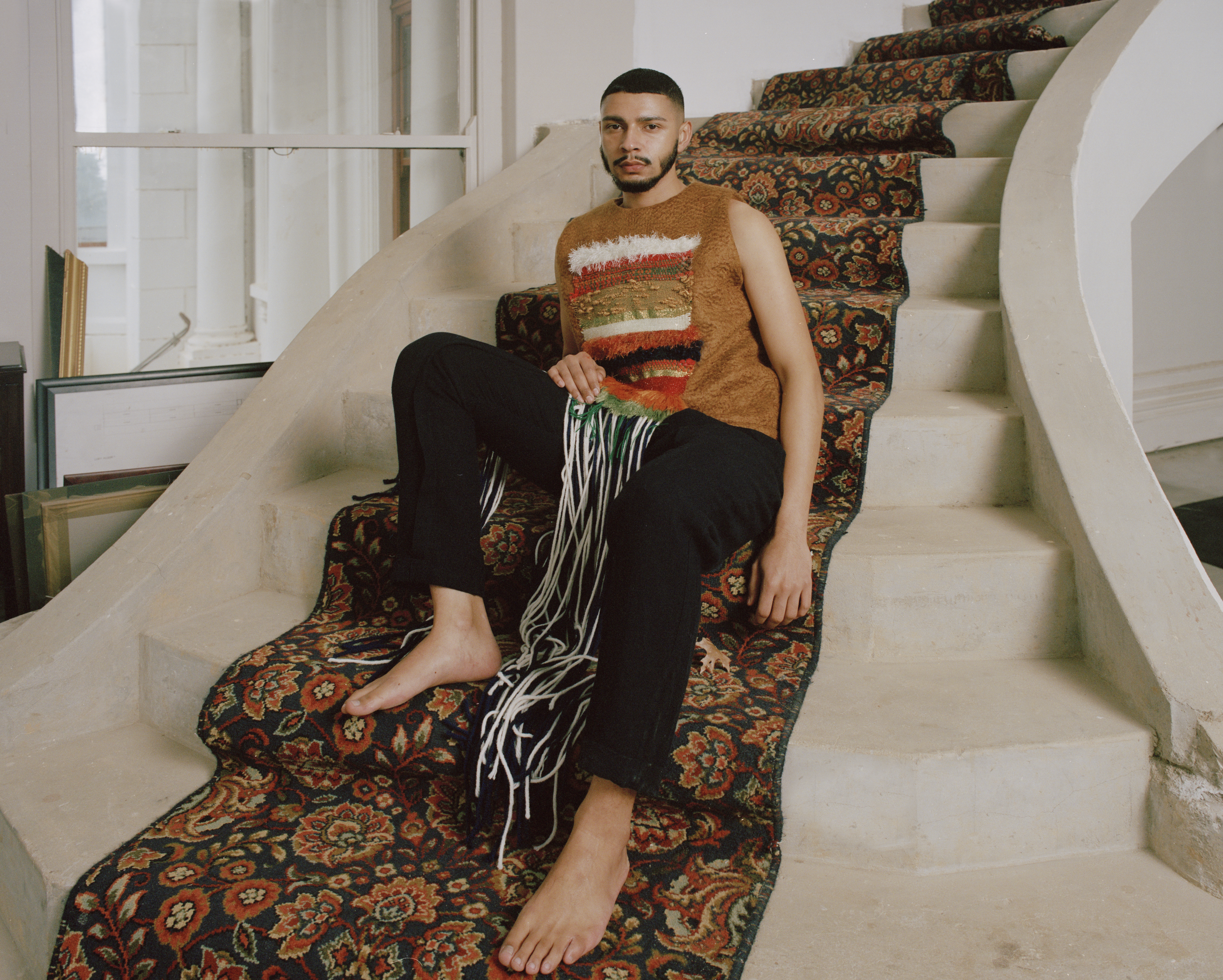
The Coutts collection by Lukhanyi Mdingi. Image: Johno Mellish
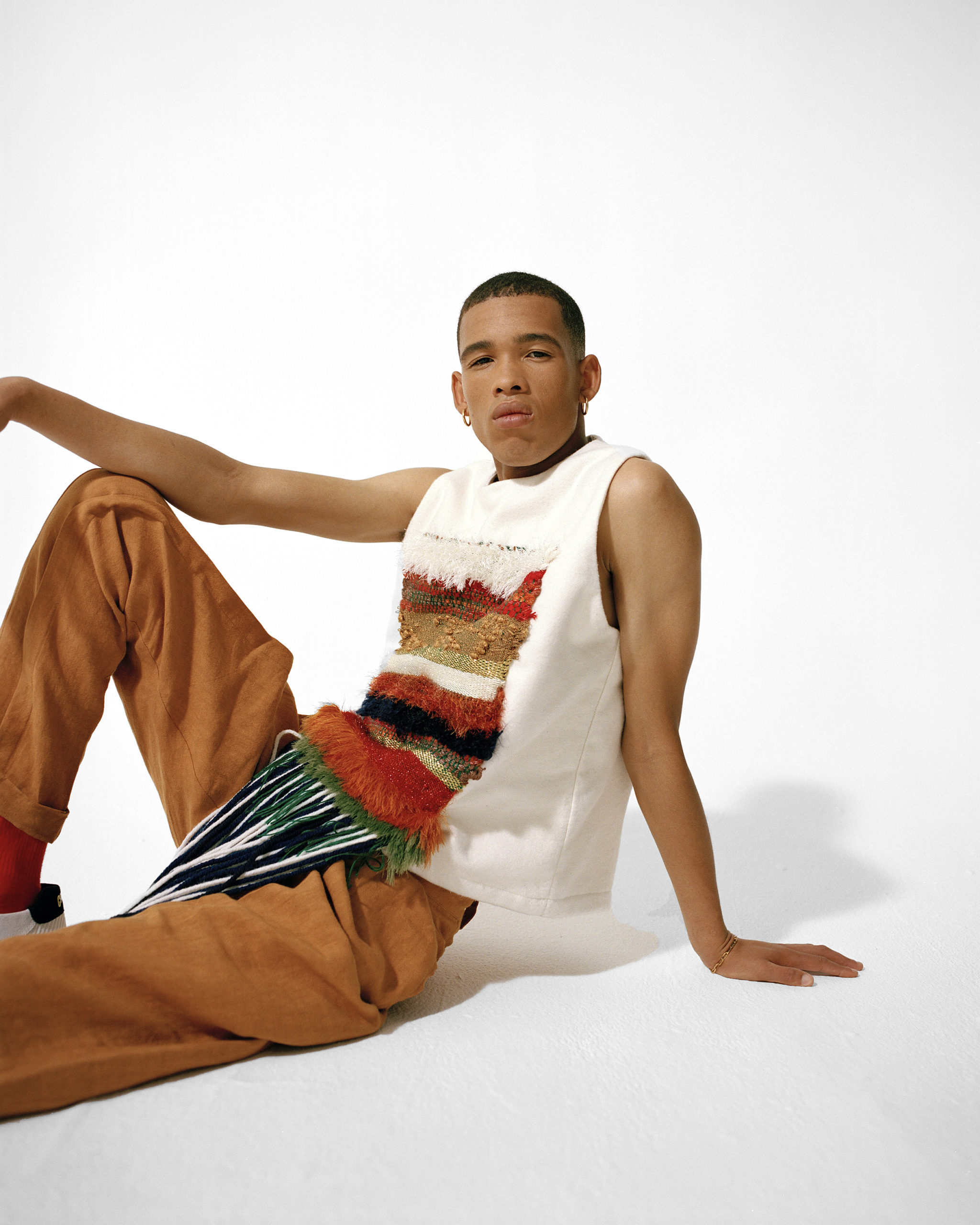
The Coutts collection by Lukhanyi Mdingi. Image: Jesse Navarre Vos
Philani was originally set up as a paediatric clinic in the township of Crossroads by Ingrid le Roux and a team of medical students in October 1978. What began as an initiative to treat malnourished children who lived in the area grew into a powerful and multi-faceted upliftment programme with a far-reaching impact on impoverished communities in surrounding areas.
“We eventually ended up adding a weaving project and a printing project to give mothers a chance to earn a living and feed their children,” says Le Roux, medical director of Philani.
Nokwanele Mbewu, the senior manager of the Mentor Mother Programme, works closely with the mothers of Philani. She explains that many of them come from backgrounds of domestic violence.
What truly sparked something within him was the fact that, for the first time ever, he was working alongside women who ‘looked like him’, women who could have been his own mother – this, he notes, is a rarity in his industry.
“Most of the mothers are really living under the poverty line. Many of them were abused by their husbands, so for them, Philani has been a place of comfort where they can meet with others and share their stories and, at the same time, learn to do something that is going to earn them a living.”
While the organisation has provided a safe space and a sanctuary to nurture their skills, the last year and a half has not been easy for the mothers of Philani. During lockdown, work was scarce and opportunities to generate income were limited. Philani’s collaboration with Mdingi has allowed the mothers to continue providing for themselves and their families and add to their repertoire of creative skills.
“I think that Lukhanyo has really given the weavers a positive challenge. They have discovered that they really can produce these incredibly beautiful things, things that are different to the types of weaving that they usually do. Typically, they weave with offcuts from T-shirts, so Lukhanyo has come in and given them fantastic new materials and different patterns. I think that discovering and developing new skills is exciting for anyone,” Le Roux explains.
The working relationship between the Lukhanyo Mdingi label and Philani has been consciously guided by the principles of mutual respect and consideration. Mdingi reflects on his collaborative journey with the weavers of Philani, explaining that what truly sparked something within him was the fact that, for the first time ever, he was working alongside women who “looked like him”, women who could have been his own mother – this, he notes, is a rarity in his industry.
“A lot of the time we walk into these spaces and we think that we are here to do these communities and NGOs a favour. But, in actual fact, what they’ve done for LM is incredible. Moving forward, I really want to be so considerate and so mindful as to how we grow together, how I move with them and how the relationship is.
“You know, at the end of the day I’m working with human beings, and respect must always be at the forefront of it. To me it’s not just a transactional thing, it’s not just business. I want Philani to be known, and to be seen and to be heard.”
September 2021 saw the hard work of Mdingi and the Philani weavers truly come to fruition when the designer was awarded the Karl Lagerfeld Prize at the LVMH awards ceremony in Paris. The prestigious, annual ceremony affords a hand-picked selection of up-and-coming, talented fashion designers from around the globe the opportunity to publicly showcase their craft and provides winners with financial support to help them continue building their brands.
“On the day of the ceremony I found myself completely present, and calm and proud to be representing the label and those that have been there since day one, Lukhanyo explains.
The collection’s integration of bold fabrics, textures and dynamic patterns is evocative of the work that went into the series; the coming together of minds, coordination of different hands and inextricable spirit of the collective is seamlessly woven into the fibres of the garments.
“I felt proud to be representing a community of individuals who had used their time, their talent and their trust as a means of service. I was also so proud to be representing my country; the LVMH prize is the Olympics of the fashion world. It is a podium, a platform that offers opportunity and visibility that can really propel your career in an unimaginable way.
“The weeks and months leading up to that day were all over the show but at that moment, on that day, I found myself completely at peace, and completely happy.”
As a commemoration of his late friend and as a tribute to his blossoming collaboration with Philani, the Coutts Collection was chosen to represent the Lukhanyo Mdingi brand at the LVMH ceremony. The collection’s integration of bold fabrics, textures and dynamic patterns is evocative of the work that went into the series; the coming together of minds, coordination of different hands and inextricable spirit of the collective is seamlessly woven into the fibres of the garments.
Throughout his collaboration with Philani, Mdingi has worked in particularly close partnership with Somkazi Makhayi, who played a primary role in weaving the garments for a number of his collections. Makhayi describes the collaboration process and the feeling of deep fulfilment she derives from seeing her and Mdingi’s work displayed on the pages of magazines, gracing international runways and on television screens.
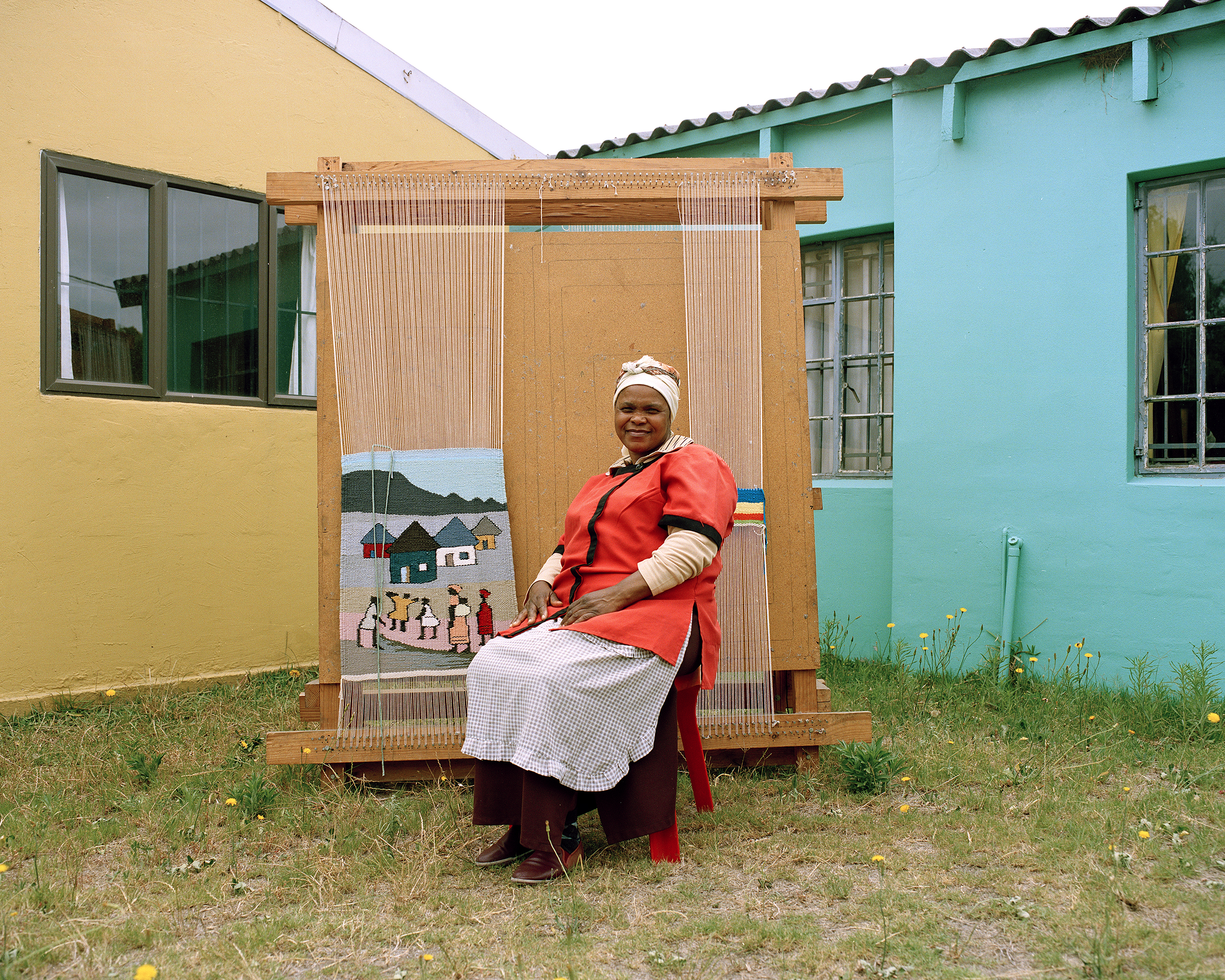
Somkazi Makhayi with her woven tapestry. Image: Jesse Navarre Vos
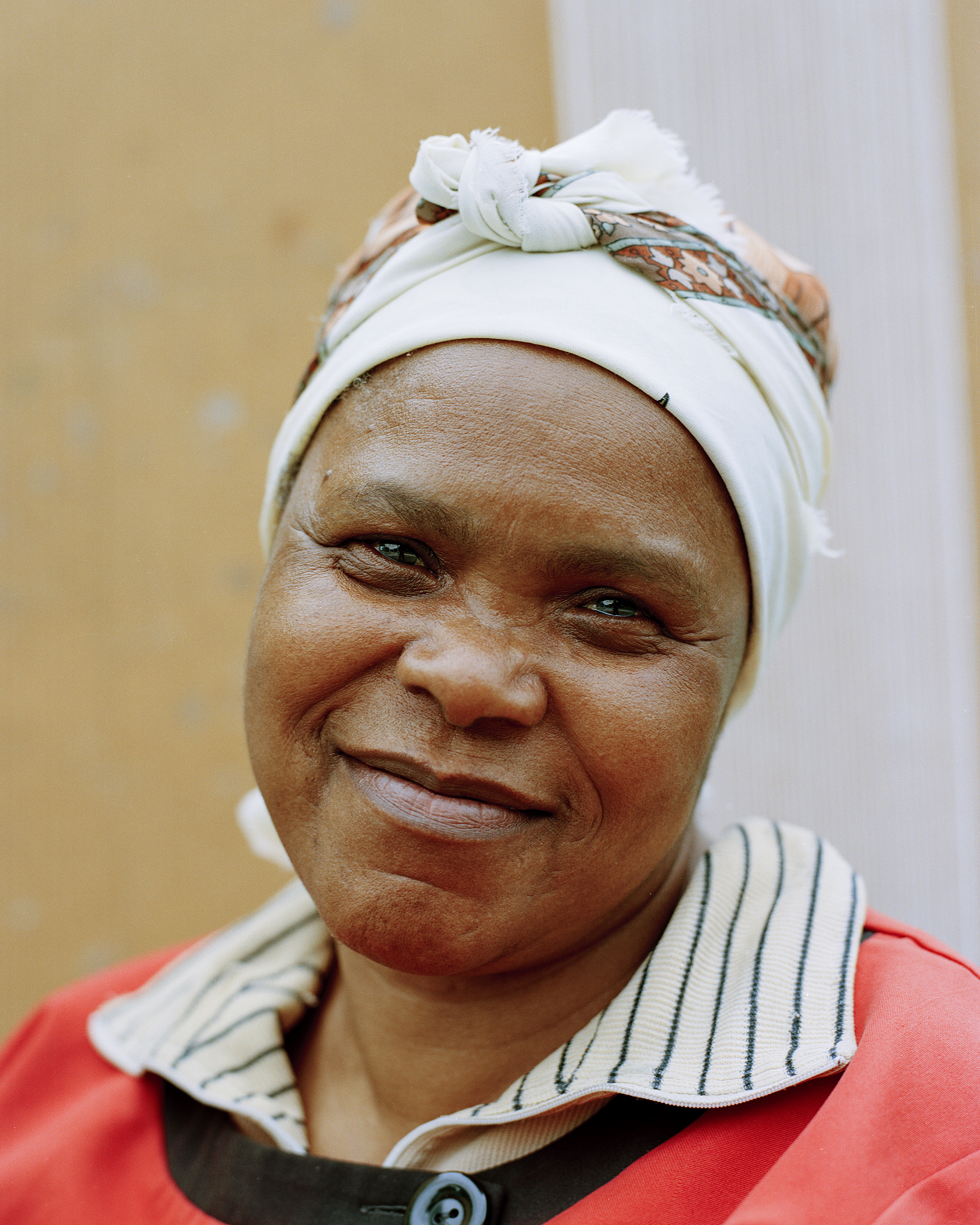
Somkazi Makhayi – “She was phenomenal and did the majority of the woven pieces in the COUTTS Collection for Net-A-Porter, SSENSE and Merchants on Long,” says Mdingi. Image: Jesse Navarre Vos
“I’m very proud. I feel great joy and love seeing my work shown in interesting places and to so many different people. It was really lovely working with Lukhanyo. He taught me new techniques to make some really beautiful things… I am so grateful to be able to work with both Philani and Lukhanyo. They inspire me and make me feel like I can also help to improve the lives of others, contributing to the knowledge base here by teaching young people new skills.”
The Lukhanyo Mdingi label’s website defines its creative decisions as guided by the principle of steadiness; impervious to the fluctuating trends that tend to dictate the transient fixations of the fashion industry. While our time on this Earth is fleeting, the collective is a constant. We are survived by our creations and our creations are meaningless without a community to appreciate them.
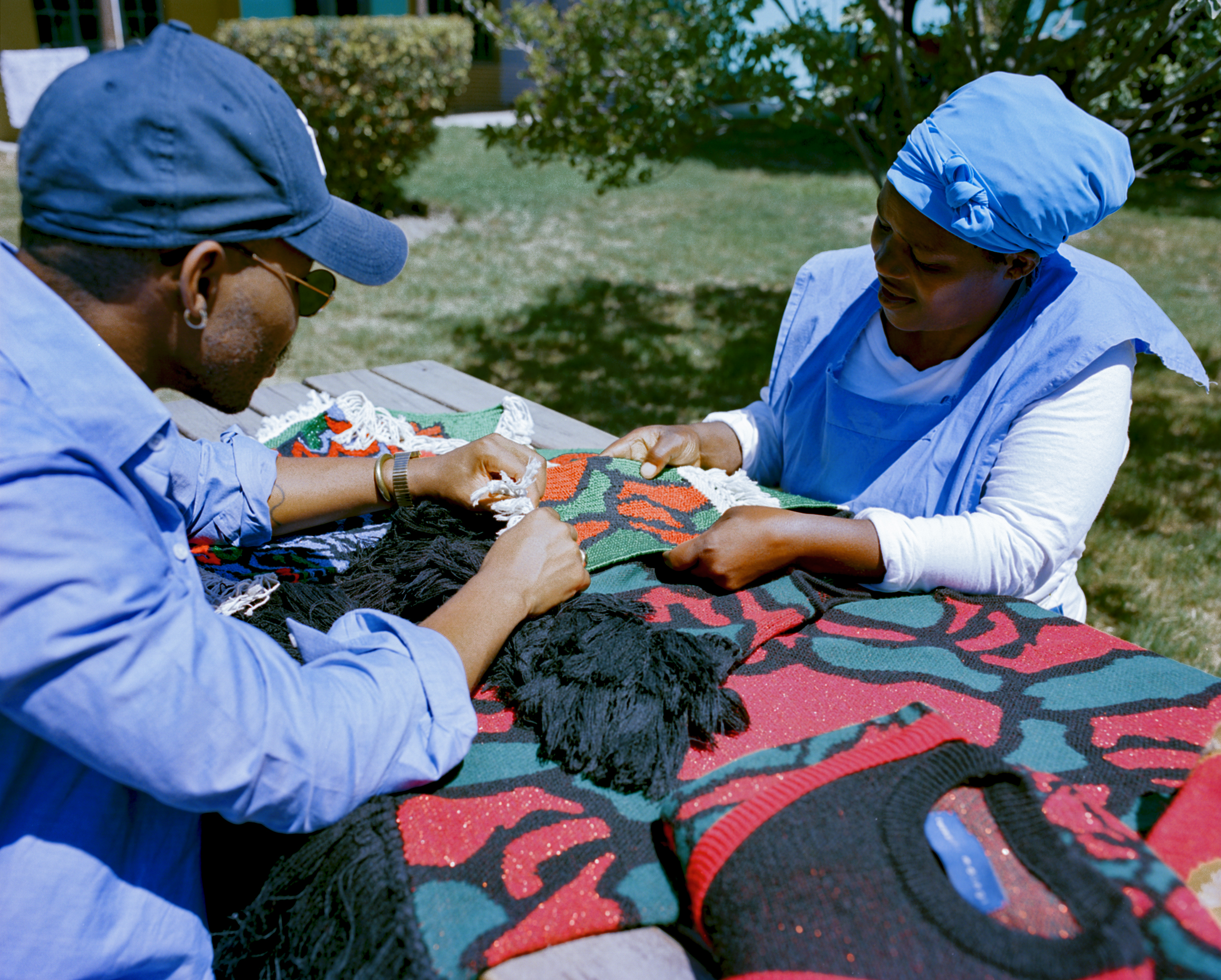
Lukhanyo Mdingi and Mam’Noludwe reflecting on how the tapestries that were designed by the women of Philani and Nicholas Coutts were digitized and put into knitwear. Image: Jesse Navarre Vos
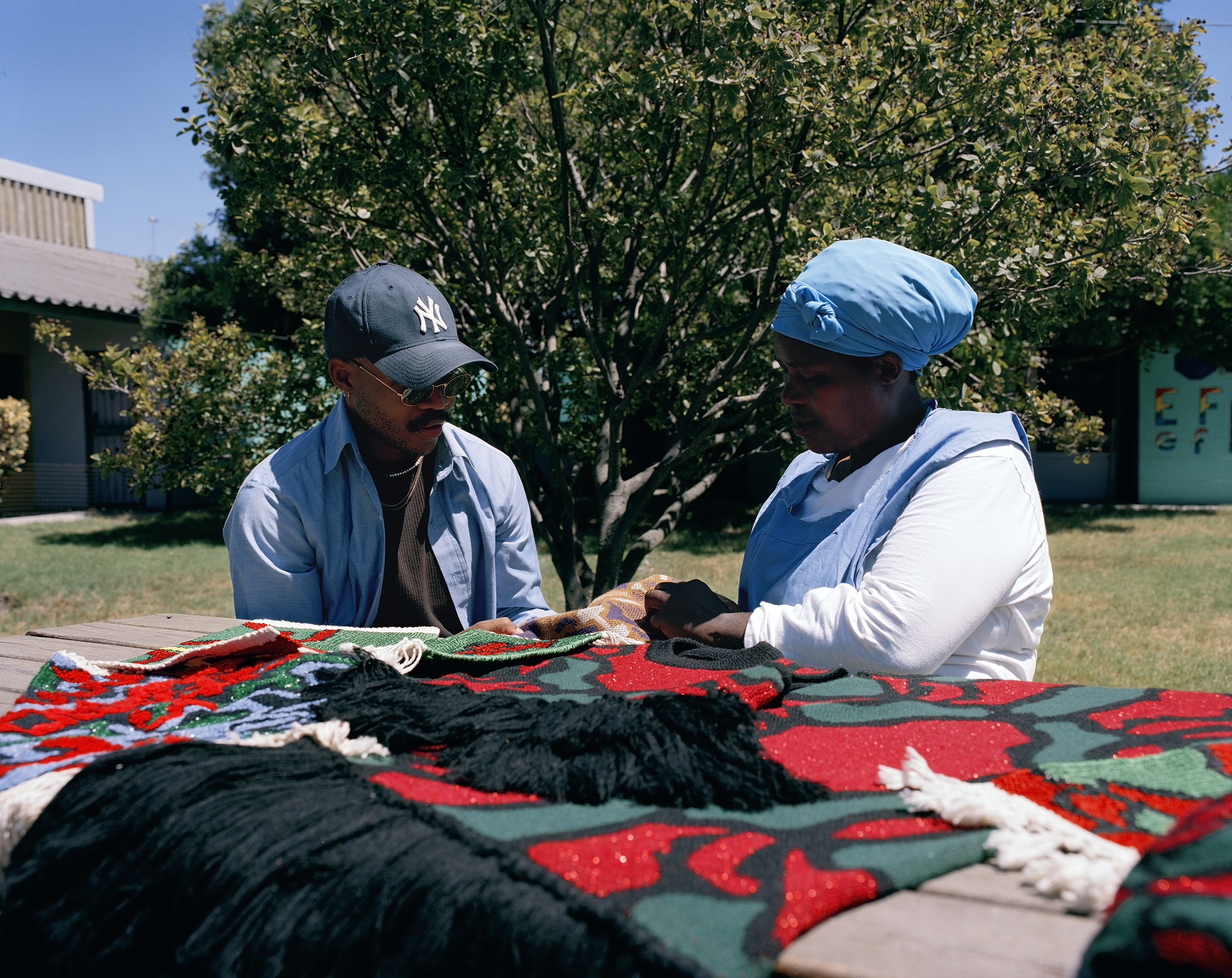
Lukhanyo Mdingi and Mam’Noludwe reflecting on how the tapestries that were designed by the women of Philani and Nicholas Coutts were digitized and put into knitwear. Image: Jesse Navarre Vos
We asked Mdingi about his views on the current global fashion climate and what he hopes might change about the industry as it continues to evolve. His response encapsulates the very soul of the Lukhanyo Mdingi label’s impactful collaboration with the weavers of Phliani.
“What I do wish is that people would recognise that it’s not just a singular within a label. It’s people. It’s human beings. I know that the label says, ‘Lukhanyo Mdingi’, but it feels like such an extension of so many other things and of so many other people who have contributed so much to it. What I really hope for in the future is that designers and fashion houses will start doing more to celebrate the people behind their label.” DM/ML

















 Become an Insider
Become an Insider
Comments - Please login in order to comment.